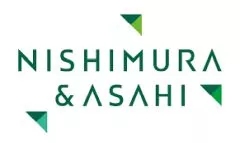There are several laws and regulations regarding anti-bribery matters in Thailand, but the Penal Code B.E. 2499 (1956) ("Penal Code") and the Organic Act on Anti-Corruption B.E. 2561 (2018) ("Organic Act") are the two main legislations most commonly referred to when discussing such issue (these laws and regulations are collectively referred to as the "Anti-Money Laundering Law or AML").
In general, the Penal Code prohibits giving, offering or agreeing to give any property or any other benefit to a Public Official, member of a State Legislative Assembly, member of a Provincial Assembly or member of a Municipal Assembly (Section 144 of the Penal Code); or an official in a judicial post, Public Prosecutor or Inquiry Official (Section 167 of the Penal Code) - where such giving, offering or agreeing to give was performed in order to induce such person to perform or not perform any act, or to delay the performance of any act contrary to one's own duty.
There is no specific statement under these two provisions regarding the minimum amount that may constitute a violation of the Penal Code. Consequently, if such an offering is provided in order to induce such person to perform or not perform any act, or to delay the performance of any act contrary to one's own duty, it will be regarded as a violation of the Penal Code, regardless of how valuable or invaluable the offering is. On the other hand, if an offering is made for a reason other than such foregoing purposes, notwithstanding how valuable the offering is, it may not be considered as a violation of the Penal Code, i.e. not a provision of bribery.
For the avoidance of doubt, the term "official" means a person the law prescribes as an official or who has been appointed in accordance with the law to perform an official duty, whether on a regular basis or for an occasional basis, irrespective of receiving remuneration or not. It is also worth noting that the provisions above are only applicable to the to the public sector. Currently, there is no explicit provision which prohibits an offering that may constitute bribery in the private sector.
The Organic Act provides a definition of "corruption" as the performance or omission of a particular act in the course of official duties, or the performance or omission of a particular act under a circumstance likely to cause other persons to believe that the person so performing or omitting holds such office or has such duty although the office or duty is not held or assumed by such person, or the exercise of power in office or in the course of official duty with a view to acquiring undue advantage for oneself or for other persons, or committing an offence of malfeasance in office or malfeasance in judicial office under the Penal Code or other laws. However, the definition of "bribery" is not provided either under the Penal Code or the Organic Act.
In this regard, the Organic Act prohibits any Public Official from accepting assets or any other benefits which may be calculated in monetary value from any person, except for assets or benefits which such persons may be entitled to under the laws, regulations or rules permitted by virtue of law; unless the acceptance of assets or other benefits is on an ethical basis under the criteria and amount as prescribed by the Office of the National Anti-Corruption Commission ("NACC") (Section 128 of the Organic Act). This in turn can be defined as a basis of bribery.
In order to further clarify, "Public Official" means a State official, a person holding a political position, a judge of the Constitutional Court, a person holding a position in an independent agency and the NACC.
The provisions of the Organic Act are again mainly applicable to the public sector, and there is no prohibition or restriction under the Organic Act on the acceptance of any offering in relation to bribery or corruption applicable to the private sector.
Exemption to the Organic Act
The Notification of the Office of the National Counter Corruption Commission Concerning the Provisions of the Acceptance of Property or Any Other Benefit on an Ethical Basis by State Officials B.E. 2563 (2020) ("Notification") was enacted and has been in effect as of 14 March 2020. The Notification provides an exemption for any Public Official regarding the acceptance of an offering if such offering is provided as a social convention or custom, subject to the following elements:
- The offering does not exceed Baht 3,000 in monetary value per offeror and is received from a person other than a family member in each and every circumstance (if the value exceeds Baht 3,000, a report must be submitted to the supervisor for approval of acceptance); and
- The offering is offered as a gift to an ordinary person (not specifically to any designated person).
Therefore, a Public Official may accept an offering without being deemed in violation of the Organic Act if the foregoing conditions are met.
Please note that while the Notification is applicable only towards the public sector, many private sector entities have also adopted this measure as an internal anti-bribery policy. However, such adoption is not mandatory.
The content of this article is intended to provide a general guide to the subject matter. Specialist advice should be sought about your specific circumstances.


